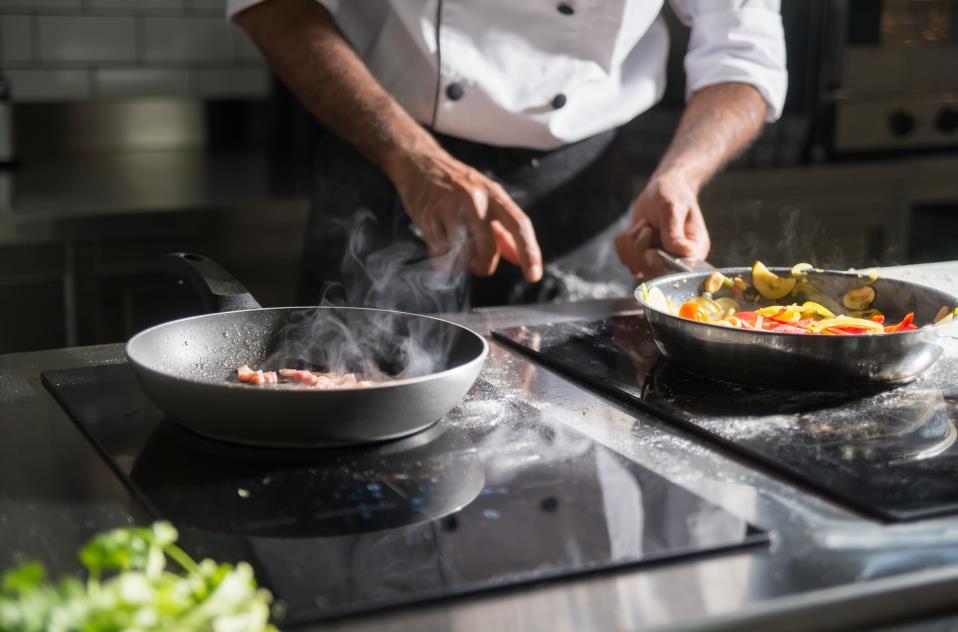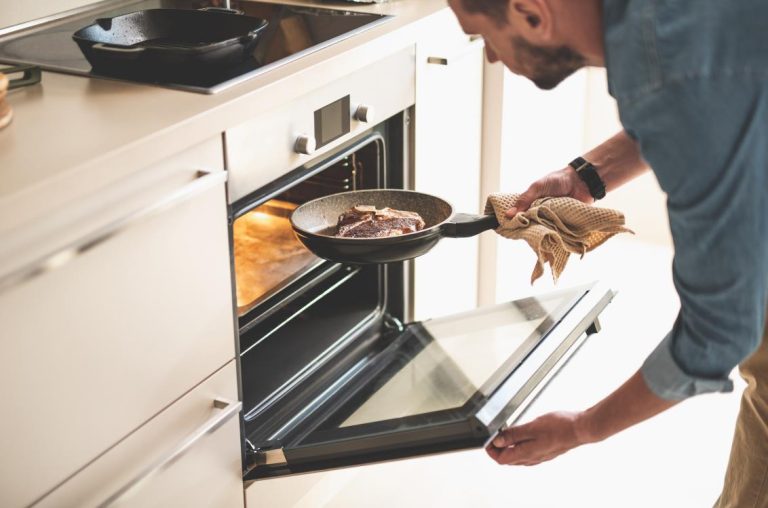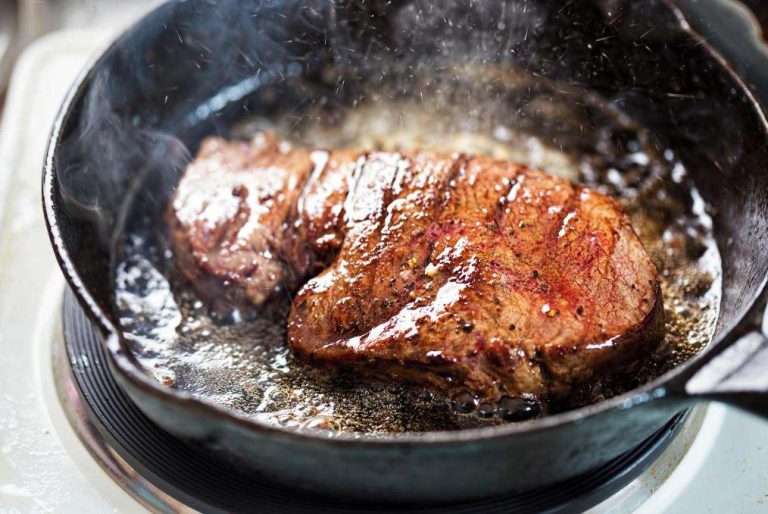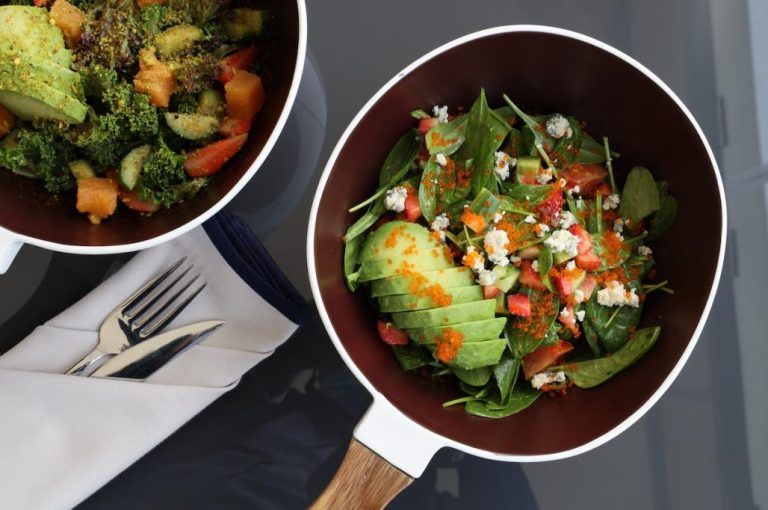Enameled cast iron cookware has been gaining popularity in recent years. However, a common question among potential buyers is, does enameled cast iron work on induction cooktops? The answer is YES!
Enameled cast iron cookware is compatible with induction cooktops. The enamel coating on the cast iron does not affect its ability to work on induction cooktops because it has magnetic properties.
If you want to learn more about enameled cast iron cookware and its compatibility with induction cooktops, keep reading!
What is enameled cast iron cookware?
If you’re no stranger to cookware, you know cast iron cookware is unparalleled in retaining heat for a beautiful golden sear.
However, cast iron does have one major drawback. It requires seasoning to keep its smooth exterior. And washing it with soap will remove the seasoning you’ve worked so hard to build up.
Here’s where enameled cast iron comes in, which is essentially cast iron cookware with an enamel covering over the cooking surface. The enamel covering eliminates the need for seasoning on the cooking surface.
Enameled cast iron has either enamel applied to its interior or both the interior and exterior. With proper care, the enamel layer helps prevent rusting and provides a non-stick surface, making it easier to clean afterward.
Enameled cast iron is also durable and virtually indestructible. It’s an ideal choice for anyone who wants to invest in quality cookware that will stand the test of time.
Buy Wholesale Cookware and Start Scaling up with Us Today
Contact us and connect with a sales rep to get a free quote.
How does an induction stove work?
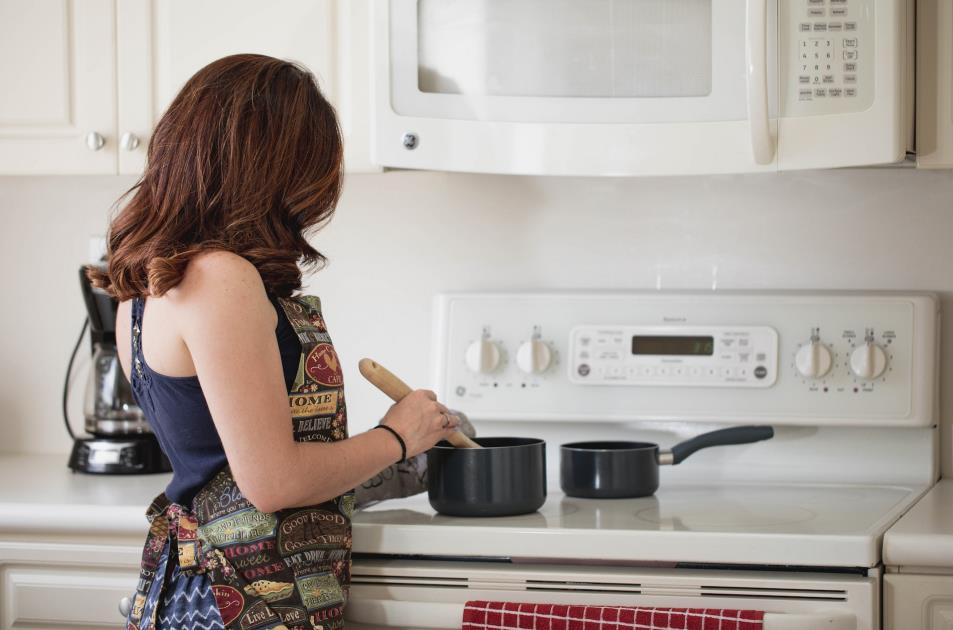
Induction cooking bypasses the need for a heat transfer medium by directly heating the cooking vessel. A magnetic current is generated through the cookware due to an electric current. The current usually flows via a copper wire wound below the cooking surface. You can touch the whole cooktop without getting burned.
The heat output can be adjusted quickly and accurately with induction cooktops. This provides precise temperature control that is difficult to achieve with gas or electric stovetops. You can then cook delicate dishes requiring specific temperatures, like sauces, easily.
Additionally, induction cooktops heat up faster than conventional stovetops. This can help speed up cooking times and reduce overall energy consumption.
How is enameled cast iron as a cookware material?
Now that you know how exactly enameled cast iron works on induction, let’s discuss its performance.
Versatile
The versatility of cookware made of enameled cast iron is impressive! You can use it to braise, grill, boil, fry, or bake. It may be used to cook in the oven, on the stovetop, or under the broiler.
But always wear an oven mitt to protect your hands while handling enameled cast iron since the handles may get hot.
Long-lasting
A well-cared-for set of enameled cast-iron pots and pans may last for generations. The enamel coating doesn’t deteriorate over time as Polytetrafluoroethylene non-stick or ceramic coatings do.
High-temperature resistance
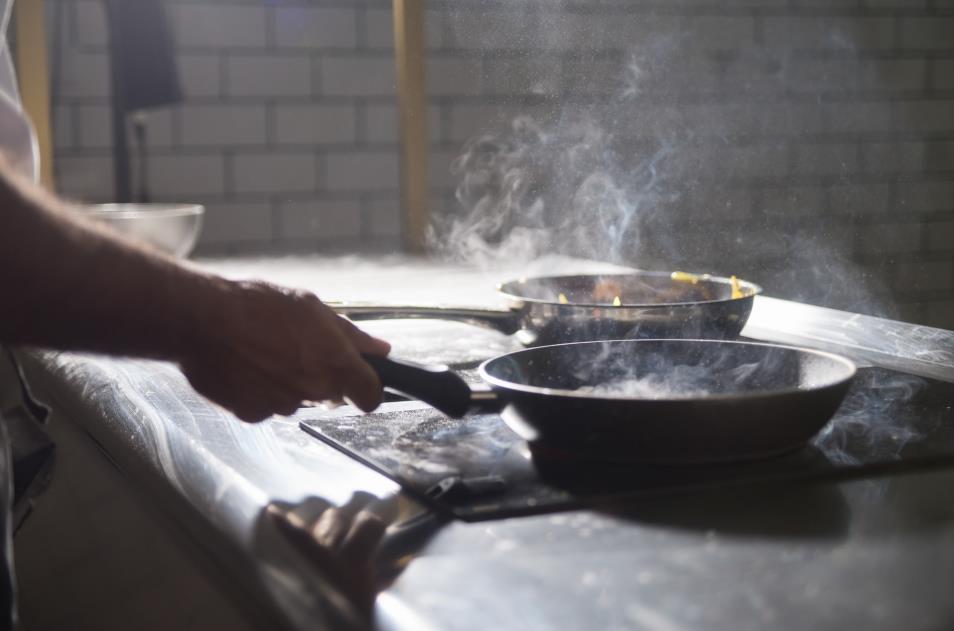
Cookware made of enameled cast iron has the benefit of having the same high heat tolerance as ordinary cast iron. The enamel provides a non-stick coating that, compared to PTFE and ceramic non-stick, can withstand far higher temperatures.
Corrosion resistance
Enameled cast iron has thick walls resistant to scratches and corrosion. This is why it can withstand the daily wear and tear of cooking.
Its smooth enamel finish makes it difficult for food to stick. It also makes it labor-saving to clean without the need for harsh scrubbing or scouring.
Health benefits
Enameled cast iron cookware has some significant health benefits compared to other materials. Its non-porous surface makes it difficult for bacteria or other microorganisms to survive. This provides a safe and healthy cooking environment.
Additionally, its non-reactive surface ensures no chemicals from the cookware leach into your food to contaminate it.
Ease of cleaning
Since the enamel finish on the cast iron is non-porous, food particles do not get trapped in the surface of the metal. This makes it easier to wipe away messes with a damp cloth or sponge.
A non-abrasive cleaner can also be used on more stubborn residue–just make sure to avoid abrasive cleaners that could scratch the enamel.
Maintenance
Enameled cast iron is an incredibly durable material that requires minimal maintenance to stay looking good and working properly. To ensure that your cookware remains in optimal condition, it’s important to season it regularly with oil or fat before each use.
Additionally, washing with warm soapy water after each use will help prevent rusting.
Enameled cast iron vs. cast iron: A brief comparison
Cast iron and enameled cast iron are two heavyweights in the kitchen, but which one is right for your business? Read on to discover the essential differences between each so you can make an informed decision that can generate revenue for your culinary business.
Does cast iron work on induction?
Cast iron cookware is generally magnetic and can be used on induction cooktops. Induction cooktops create a magnetic field that induces an electric current in the metal of the cookware, generating heat. As a result, any ferromagnetic material, such as cast iron, can be used on an induction cooktop.
However, it’s important to note that not all cast iron cookware may be compatible with induction cooktops. For instance, certain types of cast iron may have uneven bottoms or other irregularities. This can prevent proper contact with the cooktop’s surface, reducing the efficiency or leading to damage over time.
If you want to use cast iron on an induction cooktop, it’s essential to check whether the cookware is compatible with induction cooking. Look for induction-compatible labels or consult the manufacturer’s instructions.
Other factors to consider
Compatibility with induction stoves is a make-or-break factor for many customers. But it’s also essential to consider a few other significant differences.
- Cleaning: Enameled cast iron has a glass-like, non-porous coating on the inner surface. This makes it more resistant to staining and rusting than regular cast iron. The coating also helps reduce the amount of food sticking to the surface when cooking and makes for labor-saving cleaning.
- Weight: Enameled cast iron is generally lighter than regular cast iron. This can benefit those needing additional mobility or stability when using cookware.
- Heat retention: When it comes to induction cooking, enameled cast iron is generally considered the preferred choice over regular cast iron, thanks to its higher heat retention capabilities and corrosion resistance.
- Heat distribution: Enameled cast iron is an excellent conductor of heat and can provide even cooking results since the heat is transferred quickly and efficiently throughout.
- Higher temperatures: Enameled cast iron can handle much higher temperatures than regular cast iron without the risk of damage or warping.
Buy Wholesale Cookware and Start Scaling up with Us Today
Contact us and connect with a sales rep to get a free quote.
Tips for selling enameled cast iron cookware
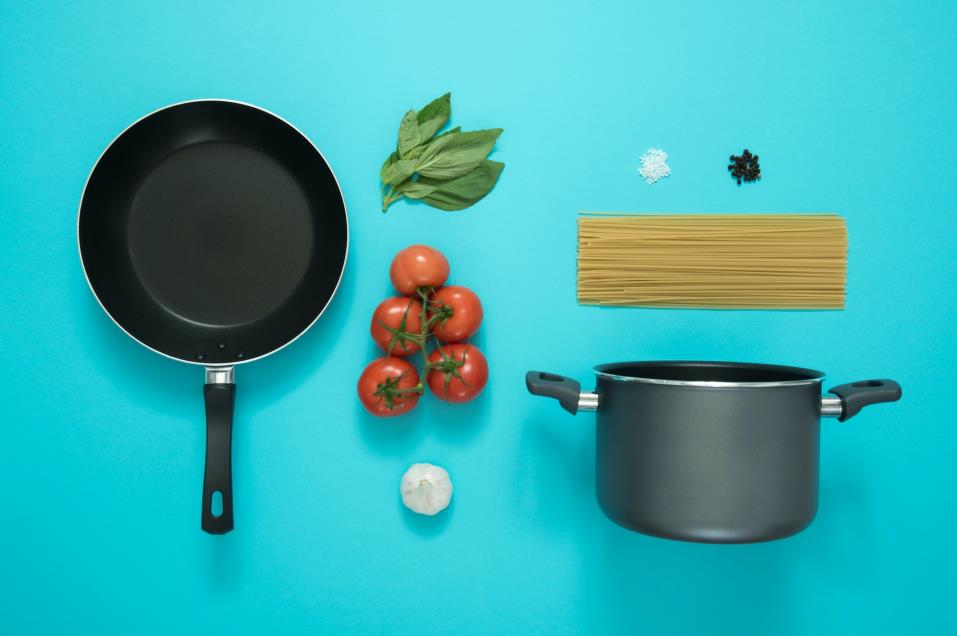
When it comes to selling enameled cast iron, it’s important to highlight its benefits, showcase its variety, and demonstrate its quality. Let’s explore some of these in detail.
- Showcase the variety: Enameled cast iron comes in many colors and styles, making it a versatile choice for any kitchen. Showcase the variety of options available to potential buyers. Focus on the different shapes and sizes used for various cooking needs and address customers’ pain points.
- Demonstrate the quality: Enameled cast iron is a premium product that commands a higher price point than other types of cookware. To justify the price, demonstrate the quality of the product by highlighting the manufacturing process. Educate your customers about the materials used and the attention to detail in each piece.
- Educate customers: Many consumers may not be familiar with enameled cast iron or how to care for it. Educate potential buyers on the benefits of using enameled cast iron, how to properly care for it, and how to maximize their investment. This can help build customer trust and loyalty, leading to a competitive advantage.
- Leverage promotions and incentives: Consider offering promotions or incentives to entice potential buyers. This can include free shipping or a discount on bulk orders, which can help make your product more competitive in a crowded marketplace.
- Create bundle deals: Consider bundling your enameled cast iron cookware with kitchen products such as utensils or oven mitts. This can add value to the customer and help increase sales.
- Offer warranties and guarantees: Provide a warranty or guarantee for your enameled cast iron cookware. This will instill confidence in potential buyers and help you differentiate your product from competitors.
It is important that you form partnerships with the right service providers. An experienced wholesaler like LeeKnives can offer quality products to meet your customers’ needs. When your customers are satisfied, they repurchase, leading to long-term business sustainability.
Final word
Enameled cast iron can work on induction cooktops. But not all types of enameled cast iron are compatible with them. The cookware must have a magnetic base to work with induction technology. Additionally, it is recommended to avoid dragging enameled cast iron on an induction cooktop as it can scratch the cookware’s surface.
If you are looking for experts in the cookware industry for advice or potential business opportunities, contact us today. We will get back to you promptly.
